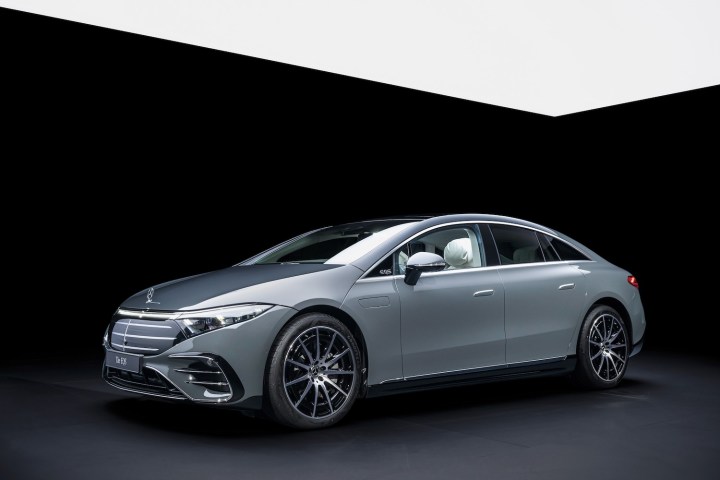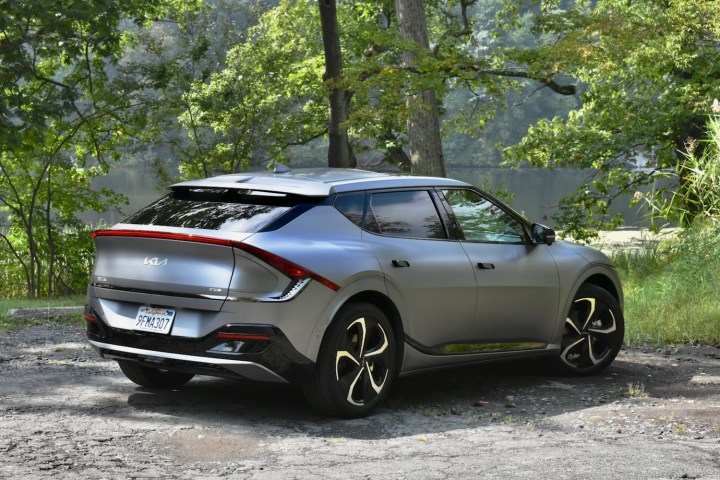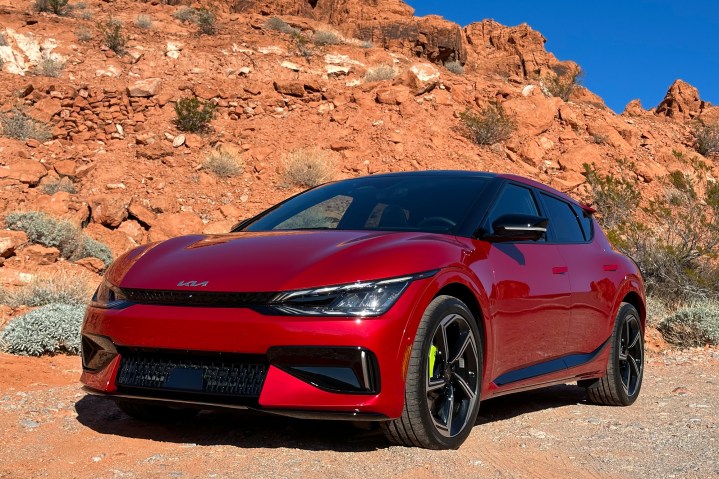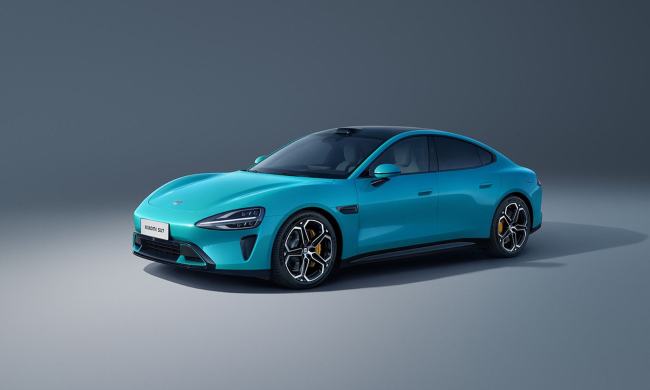
You finally get that notification that the electric car you ordered months ago is ready for pickup. You get to the location, sit in the car and turn it on. Pulling out into the road, you hear something — a strange noise you didn’t quite expect. You expected the sweet quietness of a full electric vehicle. But is that … engine noise?
It is and it isn’t. As humans, we’ve been so used to the sound of an engine for so long that carmakers think we’ve associated that low-frequency rumble with performance and quality. So, what are they doing? That’s right — they’re pumping fake engine noises through the speakers in your electric car.
Yeah, it’s pretty dumb.
A rundown of fake noise
To be fair, not all EV manufacturers use fake engine noises — but a good portion of them do, and they seem to be split into two categories.
First, there are the cars that try and emulate real engines. The Mustang Mach-E does this, and the sound is different depending on the drive mode that you’re in. The Dodge Hornet R/T does this too, with a little more attention to detail by using only specific speakers to ensure that the noise sounds like it’s coming from a certain direction. Recently, the Hyundai Ioniq 5 N made headlines for its fake engine noises aimed at replicating the noise of a rally car.
The other category of fake car noise is aimed at creating a more futuristic experience. Mercedes-Benz has become somewhat famous for this with cars like the EQS, which can generate an array of crazy-sounding noises when you hit that accelerator.
To be clear, these fake noises are for the benefit of the driver. There are laws in place about cars generating noise outside the cabin, to alert pedestrians of the car’s presence, for example. This has nothing to do with what we’re talking about — these noises are different from those that cars generate inside the cabin.
A realistic simulation
So why are carmakers doing this? Well, it seems to have to do with carmakers wanting to simulate the experience of driving a gas-powered car — and it doesn’t end with fake noises.

Toyota, for example, is building a simulated stick shift that will let drivers “change gears,” and some reports indicate that the system may even pretend to stall if the driver incorrectly shifts. That seems a little crazy.
It feels like a big game of pretend. What’s the difference between hearing fake noises and shifting fake gears in an EV, and doing so in Gran Turismo on PlayStation? A more realistic simulation?
It’s all about options
The good news is that for the most part, carmakers allow you to turn fake interior noise off — though there are some exceptions. But why is it the default in the first place? In 30 years, are we going to be driving around in our self-driving pods hearing fake car engine noises from a different era?
There’s nothing inherently wrong with missing the experience of driving a gas-powered vehicle and wanting to simulate that in your shiny new EV. You do you — you can pretend you’re driving a race car all you want.

But I can’t help but feel a little silly when those settings are default. Maybe I’m just too self-conscious — but this is especially true when I’m driving someone else. I’m lucky enough to get to drive review cars a lot, and my wife won’t miss a beat in making fun of any electric car that doesn’t embrace the silence that’s supposed to be synonymous with an EV experience.
EVs have no soul
For the most part, building in things like fake engine noises seems to have a lot to do with the idea that electric cars have “no soul” — or that they’re essentially big appliances with a complete lack of personality.
I get it. Electric cars often feel the same to drive, whether they’re cheaper crossovers like the Ioniq 5, or luxury EVs like the Mercedes-Benz EQS.

But relying on things like fake noises feels like a crutch — and it seems very lazy. Carmakers are relying on a simulated experience to make their cars more unique, instead of actually innovating and competing on more important features. I’m not sure I would go as far as to say that EVs are being held back by simulated driving experiences, but it does seem like a pretty lame way of answering critics that argue that electric cars are boring.
I actually don’t think these kinds of features will stick around, at least in any meaningful way. Enthusiasts aside, EV buyers want the big appliance experience. They want a quiet car that’s easy to drive, and I think carmakers will embrace this more and more. Hopefully, however, they continue to do a little more to innovate in the space too, though.


